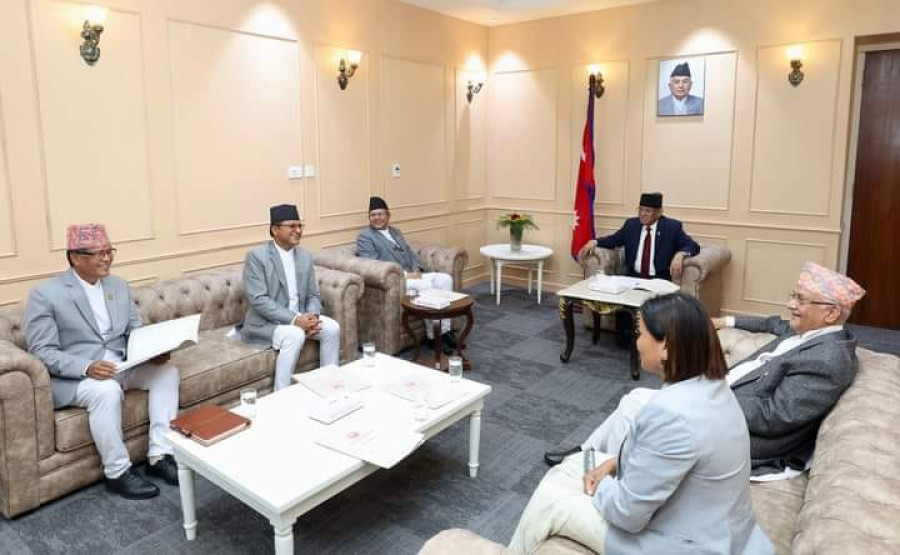National
Constitutional Council nominates Hari Krishna Karki for new chief justice
Karki has been leading the apex court as Acting Chief Justice since October 5, last year.
Tika R Pradhan
The meeting of the Constitutional Council on Monday decided to nominate the seniormost justice of the Supreme Court Harikrishna Karki for new Chief Justice.
“The meeting of the Constitutional Council held on Monday at Singha Durbar unanimously nominated seniormost justice Hari Krishna Karki for appointment as the Chief Justice of the Supreme Court,” said Deputy Speaker Indira Rana Magar. “We nominated Karki on the basis of the constitutional provision in the absence of necessary law.”
Karki has been leading the apex court as Acting Chief Justice since October 5, last year. The Supreme Court has been headless after the then chief justice Cholendra Shumsher Rana faced an impeachment motion in the second week of February last year. Rana retired on December 13 without the Parliament deciding on the motion. Prior to Karki, seniormost Justice Deepak Kumar Karki also led the judiciary as acting chief justice for seven months.
Karki will be appointed by President Ramchandra Paudel after the parliamentary hearing committee approves the nomination. However, the Federal Parliament has yet to form the 15-member parliamentary hearing joint committee in which 12 members are from the House of Representatives and three from the National Assembly.
The meeting, chaired by Prime Minister Pushpa Kamal Dahal, was attended by its members KP Sharma Oli, leader of the main opposition, Speaker Devraj Ghimire, Deputy Speaker Indira Rana Magar, National Assembly chair Ganesh Timilsina and Law Minister Dhanraj Gurung.
A meeting between Dahal and Oli held on Saturday had agreed to call the Constitutional Council meeting on Monday.
With UML objecting to the bill to amend the Constitutional Council Act despite the three major parties agreeing to endorse it through a parliamentary plenum, the major parties in the ruling coalition, Nepali Congress and CPN (Maoist Centre), had refused to form the parliamentary hearing committee claiming the committee would not be needed unless the bill was passed.
Despite a great hue and cry from different sections of society over the delay in filling the top judiciary position and continuous pressure from the Nepal Bar Association, the umbrella organisation of Nepali lawyers, the ruling and the main opposition parties continued to delay the appointment due to their partisan positions.
CPN-UML and the ruling party leaders blamed each other for the delay.
The last meeting of the Council held on April 19 to discuss a candidate for Chief Justice had failed to make headway after the main opposition leader questioned the legality of the meeting.
While a bill on amending the Constitutional Council Act is still under consideration in Parliament, the meeting of the Constitutional Council was held in line with constitutional provisions.




 9.6°C Kathmandu
9.6°C Kathmandu














